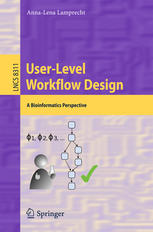

Most ebook files are in PDF format, so you can easily read them using various software such as Foxit Reader or directly on the Google Chrome browser.
Some ebook files are released by publishers in other formats such as .awz, .mobi, .epub, .fb2, etc. You may need to install specific software to read these formats on mobile/PC, such as Calibre.
Please read the tutorial at this link: https://ebookbell.com/faq
We offer FREE conversion to the popular formats you request; however, this may take some time. Therefore, right after payment, please email us, and we will try to provide the service as quickly as possible.
For some exceptional file formats or broken links (if any), please refrain from opening any disputes. Instead, email us first, and we will try to assist within a maximum of 6 hours.
EbookBell Team

4.7
56 reviewsThe continuous trend in computer science to lift programming to higher abstraction levels increases scalability and opens programming to a wider public. In particular, service-oriented programming and the support of semantics-based frameworks make application development accessible to users with almost no programming expertise. This monograph establishes requirement-centric scientific workflow design as an instance of consequent constraint-driven development. Requirements formulated in terms of user-level constraints are automatically transformed into running applications using temporal logic-based synthesis technology. The impact of this approach is illustrated by applying it to four very different bioinformatics scenarios: phylogenetic analysis, the dedicated GeneFisher-P scenario, the FiatFlux-P scenario, and microarray data analyses.